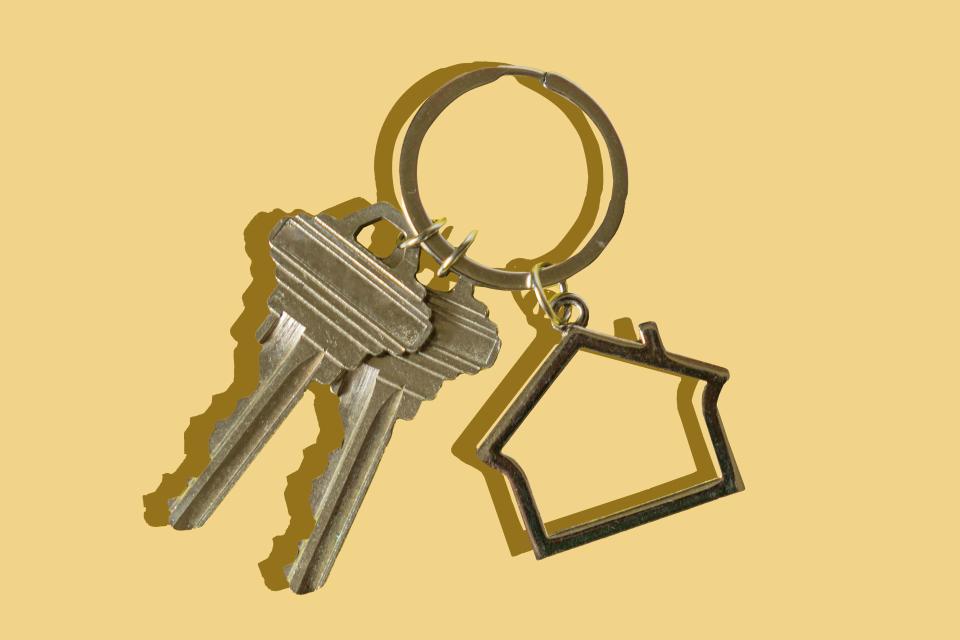5 Trends for First-Time Homebuying in 2024, According to Opendoor
The survey shows that first-time homebuyers are often making compromises and co-buying to start owning vs. renting.

Sakchai Vongsasiripat/Getty Images
Are people still looking to buy a home for the first time in this housing market? According to Opendoor’s 2024 First-Time Homebuyer Survey, they are—they're just going about it a little differently.
“Right now, first-time homebuyers find themselves in somewhat of a limbo,” says Nick Boniakowski, Head of Agent Partnerships at Opendoor. “They’re watching mortgage rates and home price predictions fluctuate as sellers remain on the sidelines—at least, for now.” However, he also adds that, “despite several pressures and hurdles, home shoppers remain resilient—whether buying with a significant other, platonic partner, or on their own."
We checked out Opendoor’s latest survey data and gained further insights from Boniakowski on trends and takeaways for those buying a home for the first time.
About the Survey
Opendoor surveyed around 1,000 nationally representative first-time US homebuyers who purchased their first home between January 2023 and December 2023.
Co-Buying With Non-Romantic Partners Is Becoming More Common
The survey results found that co-buying is a popular buying choice with more than three in four (77%) first-time buyers purchasing with someone else. Many are still buying with a romantic partner (61%), but others are co-buying with a friend (11%) with the majority being men (62%).
“Purchasing a home is a big undertaking, and often difficult to do alone,” says Boniakowski. “Co-buying can be a great option for buyers who don’t have enough liquid cash for a down payment, but could achieve homeownership if the upfront costs and mortgage are split.”
Tip
Co-buying can be challenging to navigate. To make the process as smooth as possible, Opendoor's survey suggests that co-buyers align on financial expectations, discuss credit scores, consider your mortgage strategy, and agree on an exit strategy if someone wants to move before going all-in on a home purchase together.
And while co-buying might be popular right now, that doesn’t mean no one is buying a home on their own. In fact, 23% of first-time homebuyers pursued sole ownership in 2023 compared to 17% the previous year.
Cost Is Still a Major Concern
First-time buyers find affordability a huge factor in deciding whether or not to buy a home. As much as 53% delayed purchasing a home because of their finances, with 42% not feeling ready financially. Another reason many wait to buy a home involves keeping a close eye on the interest rates with 32% of survey respondents waiting for them to go down.
“The best time to buy is when it’s right for you and your financial situation,” says Boniakowski. “I encourage buyers to focus on what they need and what they can afford.”
He also says first-time homebuyers can better understand their purchasing power by noting their monthly income and their debt. "Account for additional monthly expenses, like streaming subscriptions and coffee, in addition to leaving a 'margin of error' for unexpected expenses,” Boniakowski says. “This will help build a realistic understanding of what money will buy and how much money a buyer will need to save to cover the down payment, closing costs, monthly mortgage payment, and other costs of ownership.”
Related: Do You Really Need That 20% Down Payment on a House?
Buying a Home Is Stressful and Buyers Want An Easier Buying Experience
Buying a home is a big deal and it's easy to make mistakes. Opendoor's findings show that a whopping 90% of first-time homebuyers believe the process to be stressful. The pressure of acting fast to secure a home is also a big stress factor, especially for younger buyers. For survey respondents under 40 years old, 70% felt pressure to buy to not miss out on the opportunity compared to 55% of first-time buyers over 40.
After all the stress of going through the process of buying, homeowners are then exhausted. Sure, 73% of homebuyers still celebrated this major purchase, but 27% were simply relieved the entire ordeal was over. And about 65% of homebuyers wondered if buying a home was even worth the stress.
Related: The Best U.S. States to Buy a Home Under $150K
Tour Burnout Is Real
First-time buyers saw 23 homes on average in 2023, which is on par for the year prior. However, Gen Z seems to be more indecisive than other generations, touring an average of 32 homes either virtually or in-person. That is 45% more than millennials (22 homes), and 60% more than Gen X (20). Generation aside, parents of all kinds are seeing fewer homes, likely because they just don't have as much time to do so. Just 28% of first-time homebuyers with kids toured 20 or more homes compared to 44% of buyers without kids.
Touring all these homes can lead to burnout. With all the options to compare (and the fear of buyer's remorse), many first-time buyers think there still might be something better for them out there, making it more difficult to decide on the right home to buy.
Buyers Are Making Compromises
The “dream home” looks a little different right now with many homebuyers making compromises for their first-time purchase. Roughly 32% didn’t purchase their home in the area they sought after, 28% compromised on not getting all the features they wanted, and 22% bought a smaller home altogether.
Boniakowski explains that it’s smart to weigh the trade-offs to determine what a home shopper wants and needs in a home, and what they might be able to compromise on. “The more prepared buyers are when entering the market, the more confident they’ll feel moving forward when they find 'the one'.”
Related: These Cities Are the Best Hidden Gems With Real Estate Under $300K, According to Opendoor
For more Real Simple news, make sure to sign up for our newsletter!
Read the original article on Real Simple.

